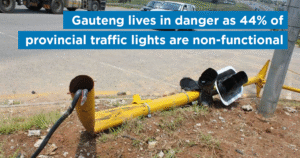Munsieville residents must travel long distances and wait in long queues in order to access health care services at nearby clinics. This is because the Gauteng Department of Infrastructure Development (GDID), since its inception in 2009, has conclusively shown itself incapable of producing value for money and infrastructure in time and within budget.
On average, it takes the government two to three times longer to complete a project than the time it takes the private sector.
Although planning for the Mayibuye clinic in Munsieville started in 2015, the contractor first went on-site in 2019. Why this took so long is not a question that the department can answer, except to say that the planning is a complex exercise. This answer is unacceptable and points to poor planning skills and project management.
As a result of non-performance on the Munsieville project, the appointed contractor was terminated in September 2021 after R7 million of the budget had been spent. A new team of service providers was appointed by DID in February 2022.
The project has still not commenced because of the dilly-dallying of Gauteng’s Department of Health.
What now needs to happen is that the Department of Health must refresh the brief to DID, and the professional team appointed by DID must evaluate whether the structures built by the first contractor have deteriorated or been damaged while the project has been stalled.
The current state of the site can be seen here and here.
The completion date is estimated to be November 2024, which is nine years after planning commenced and five years after the appointed contractor first went on site.
Based on a lack of skill and expertise in the public sector, it is no wonder that infrastructure backlogs in Gauteng will not be significantly reduced within the next 15 years.
During a recent Portfolio meeting with Premier Lesufi’s office, he admitted that the quality of health services in the province was poor and in his State of the Province Address (SOPA) this week, the Premier promised that his government will improve the health and wellness of our communities. This can only happen if the necessary skills and expertise are sought by the government and the dysfunctional Health and Infrastructure departments are held accountable.
If the DA were in charge, we would ensure that the building of health infrastructure would be efficient and would produce value for money and building within acceptable timelines.









